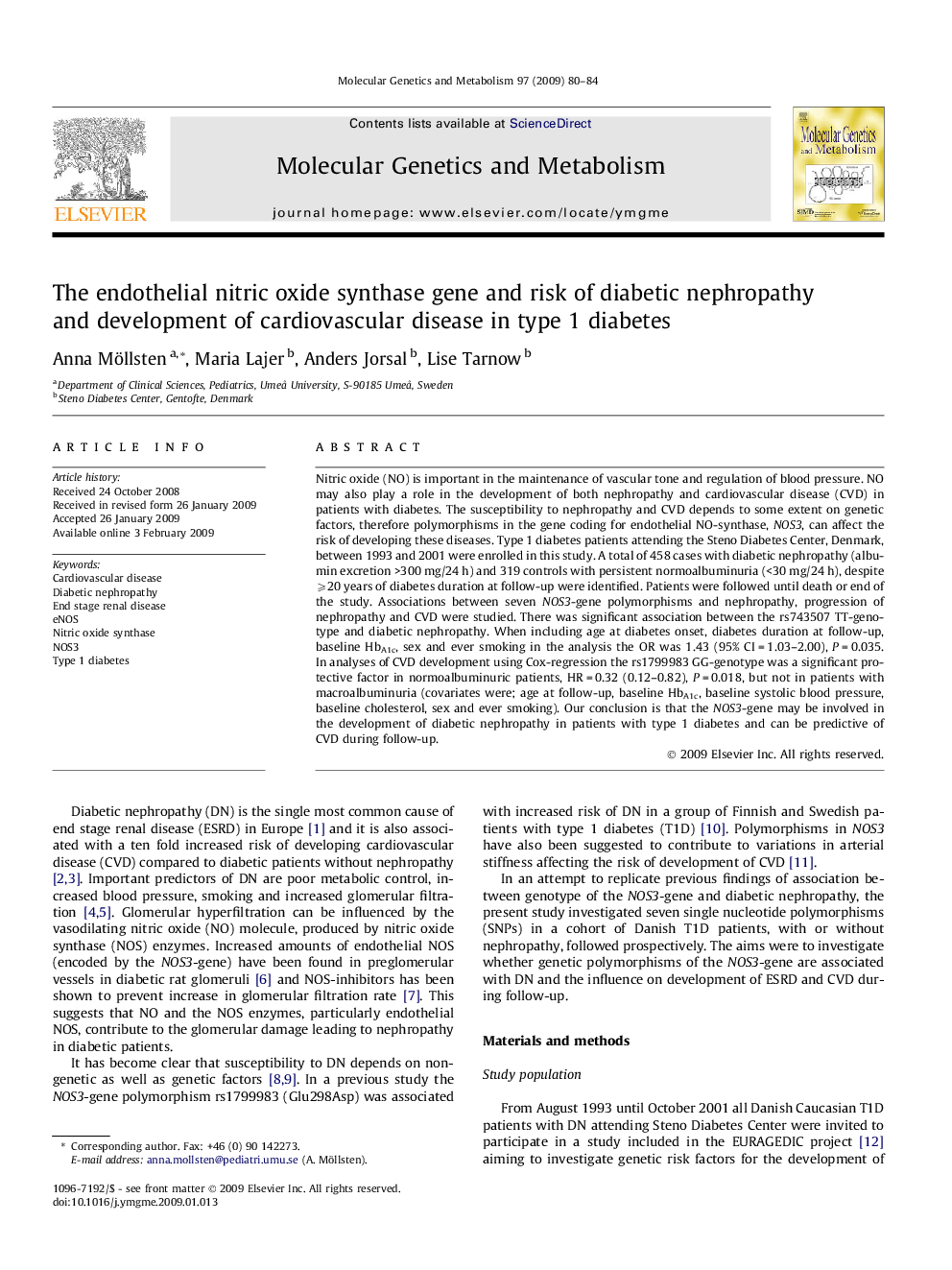| Article ID | Journal | Published Year | Pages | File Type |
|---|---|---|---|---|
| 1999856 | Molecular Genetics and Metabolism | 2009 | 5 Pages |
Nitric oxide (NO) is important in the maintenance of vascular tone and regulation of blood pressure. NO may also play a role in the development of both nephropathy and cardiovascular disease (CVD) in patients with diabetes. The susceptibility to nephropathy and CVD depends to some extent on genetic factors, therefore polymorphisms in the gene coding for endothelial NO-synthase, NOS3, can affect the risk of developing these diseases. Type 1 diabetes patients attending the Steno Diabetes Center, Denmark, between 1993 and 2001 were enrolled in this study. A total of 458 cases with diabetic nephropathy (albumin excretion >300 mg/24 h) and 319 controls with persistent normoalbuminuria (<30 mg/24 h), despite ⩾20 years of diabetes duration at follow-up were identified. Patients were followed until death or end of the study. Associations between seven NOS3-gene polymorphisms and nephropathy, progression of nephropathy and CVD were studied. There was significant association between the rs743507 TT-genotype and diabetic nephropathy. When including age at diabetes onset, diabetes duration at follow-up, baseline HbA1c, sex and ever smoking in the analysis the OR was 1.43 (95% CI = 1.03–2.00), P = 0.035. In analyses of CVD development using Cox-regression the rs1799983 GG-genotype was a significant protective factor in normoalbuminuric patients, HR = 0.32 (0.12–0.82), P = 0.018, but not in patients with macroalbuminuria (covariates were; age at follow-up, baseline HbA1c, baseline systolic blood pressure, baseline cholesterol, sex and ever smoking). Our conclusion is that the NOS3-gene may be involved in the development of diabetic nephropathy in patients with type 1 diabetes and can be predictive of CVD during follow-up.
